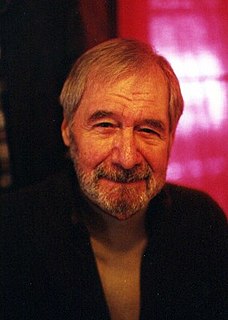A Quote by David Harvey
The invocation of social necessity should alert us. It contains the seeds for Marx's critique of political economy as well as for his dissection of capitalism.
Related Quotes
Marx's own illusion was to think that the working class movement, which he devoted his life to creating and strengthening, would both be socially and politically successful in the industrial nations of Western Europe, and that it would develop an entirely new way of human social life that would retain and even enhance the productive benefits of capitalism while overcoming the inhumanity and exploitation of capitalist social relations. Marx himself had no solutions to these problems. His object of study was capitalism itself.
In the last few decades we have seen the extraordinary rise of ecosocialist movements around the world inspired in large part by Marx's ecological critique of political economy. Marx was indeed influenced by some of the earliest attempts to develop what we now call an ecological-systems view, rooted in the concept of metabolism. Building on this perspective, Marx defined socialism as the rational regulation by the associated producers of the metabolism between society and nature in such a way as to conserve energy and to promote the satisfaction of human needs.
Marx set out to resolve the contradictions and to correct the errors in classical political economy. In this he thought he had succeeded very well. Judging by the sound and the fury of the controversy surrounding his interpretations, he either succeeded too well or deluded himself to the success of his enterprise.
Marx is thought of as an implacable foe of capitalism. But go back and read the first section of the Communist Manifesto. Notice how it contains a paean of praise for the way capitalism and the bourgeoisie have both enriched the human powers of production and also enabled us to see with clear vision the nature of human society and human history.
A proper community, we should remember also, is a commonwealth: a place, a resource, an economy. It answers the needs, practical as well as social and spiritual, of its members - among them the need to need one another. The answer to the present alignment of political power with wealth is the restoration of the identity of community and economy. (pg. 63, "Racism and the Economy")
The Marxist critique is only a critique of capital, a critique coming from the heart of the middle and petit bourgeois classes, for which Marxism has served for a century as a latent ideology.... The Marxist seeks a good use of economy. Marxism is therefore only a limited petit bourgeois critique, one more step in the banalization of life toward the "good use" of the social!
What is called 'capitalism'is basically a system of corporate mercantilism, with huge and largely unaccountable private tyrannies exercising vast control over the economy, political systems, and social and cultural life, operating in close cooperation with powerful states that intervene massively in the domestic economy and international society.
To paraphrase Karl Marx, the great Karl Marx, a specter is haunting the streets of Copenhagen...Capitalism is the specter, almost nobody wants to mention it...Socialism, the other specter Karl Marx spoke about, which walks here too, rather it is like a counter-specter. Socialism, this is the direction, this is the path to save the planet, I don't have the least doubt. Capitalism is the road to hell, to the destruction of the world.
At the turn of the [21st] century it was really Sergey Brin at Google who just had the thought of, well, if we give away all the information services, but we make money from advertising, we can make information free and still have capitalism. But the problem with that is it reneges on the social contract where people still participate in the formal economy. And it's a kind of capitalism that's totally self-defeating because it's so narrow. It's a winner-take-all capitalism that's not sustaining.
What is the elephant in all our rooms? It is the global triumph of capitalism. Democracy is fiercely disputed. Freedom is under threat even in old-established democracies such as Britain. Western supremacy is on the skids. But everyone does capitalism. Americans and Europeans do it. Indians do it. Russian oligarchs and Saudi princes do it. Even Chinese communists do it... Karl Marx would be turning in his grave. Or perhaps not, since some of his writings eerily foreshadowed our era of globalised capitalism. His prescription failed but his description was prescient.


































